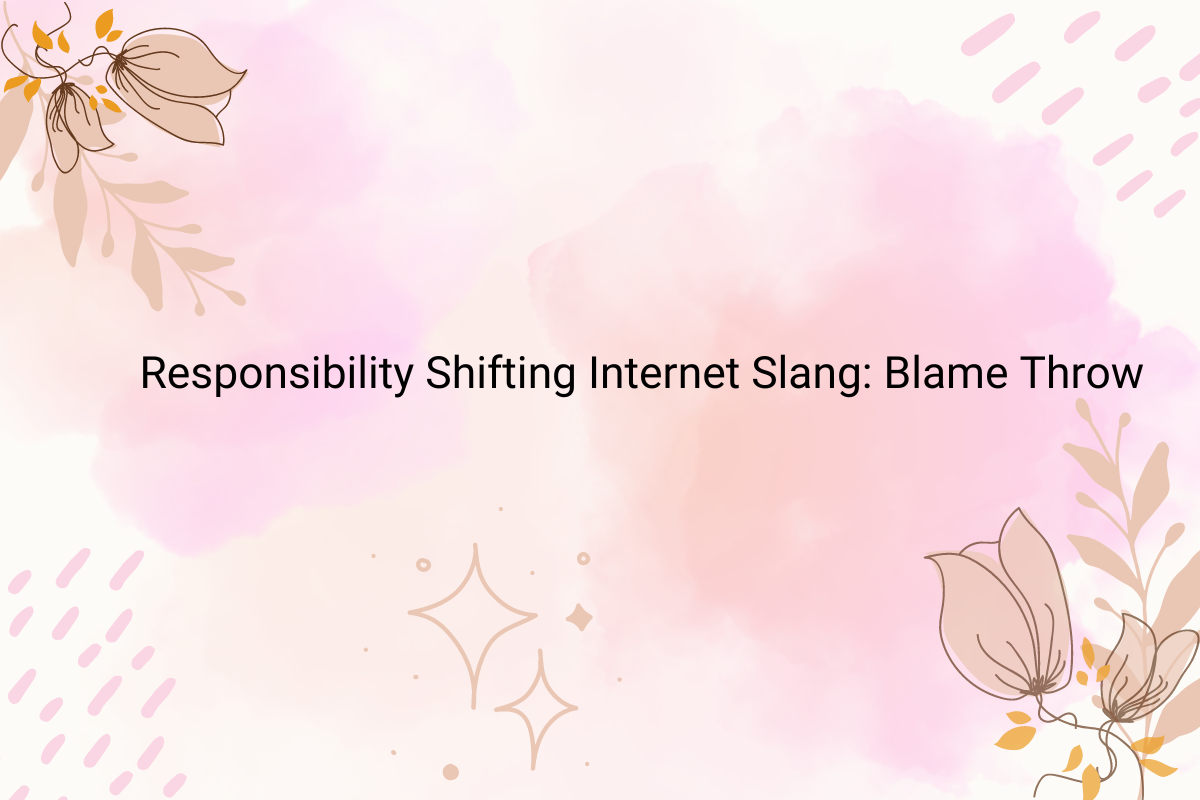Responsibility Shifting Internet Slang: Blame Throw (shuǎi ɡuō )
In today's social media and internet culture, new internet slang continues to emerge, reflecting people's emotions, attitudes, and values in the digital world. One particularly notable internet slang is "Blame Throw" 甩锅 (shuǎi ɡuō), which not only serves as a linguistic expression but also embodies a social phenomenon. This article delves into the meaning, usage scenarios, and social significance behind the internet slang "Blame Throw".
 0
0
What is "Blame Throw" 甩锅 (shuǎi ɡuō)
"Blame Throw" 甩锅 (shuǎi ɡuō) originates from the English phrase "Blame Throw," representing the act of shifting responsibility. In internet culture, it refers to attributing faults or mistakes 错误 (cuò wù) to others to evade personal responsibility or criticism. The term vividly depicts the act of transferring responsibility akin to throwing a "blame" onto someone else.
错误 (cuò wù), noun, mistakes
Examples:
- She always makes mistakes.
她总是犯错误。
Tā zǒng shì fàn cuòwù. - He often finds mistakes.
他经常发现错误。
Tā jīngcháng fāxiàn cuòwù.

Usage Scenarios of "Blame Throw" 甩锅 (shuǎi ɡuō)
"Blame Throw," as an internet slang, frequently appears in online debates, social media comments, and even daily conversations. Here are some common usage scenarios:
- Political Debates: In political debates, supporters may attempt to blame opponents for failures or errors, thereby engaging in "Blame Throw."
- Work Environment: In workplaces, certain employees might try to shift blame onto colleagues or superiors to avoid consequences.
- Social Media: On social media platforms, people may use "Blame Throw" to respond to controversial remarks or negative comments, attempting to shift 转移 (zhuǎn yí) attention or responsibility.
转移 (zhuǎn yí), verb, shift
Examples:
- We need to shift the schedule.
我们需要进行时间安排的转移。
Wǒmen xūyào jìnxíng shíjiān ānpái de zhuǎnyí. - He needs to shift mentally.
他需要在思想上进行转移。
Tā xūyào zài sīxiǎng shàng jìnxíng zhuǎnyí.
The Social Significance of "Blame Throw" 甩锅 (shuǎi ɡuō)
"Blame Throw," as an internet slang, not only serves as a linguistic expression but also reflects certain societal issues and cultural characteristics:
- Culture of Avoiding Responsibility: The phenomenon of "Blame Throw" reflects a culture of avoiding responsibility. When faced with difficulties or mistakes, people often prefer to pass blame onto others rather than courageously accepting responsibility.
- Information Overload: The information overload of the internet age also contributes to the emergence of "Blame Throw." In a sea of information, individuals can easily find evidence to support their viewpoints, providing rationalizations for their responsibility-shifting behavior.
Key Sentences:
- He often throws blame onto others when the team fails.
他经常在团队失败时甩锅给别人。
Tā jīngcháng zài tuánduì shībài shí shuǎi guō gěi biérén. - She always shifts her own mistakes onto others.
她总是把自己的错误甩锅给他人。
Tā zǒng shì bǎ zìjǐ de cuòwù shuǎi guō gěi tārén. - When problems arise, he immediately starts to pass the buck.
当问题出现时,他立刻开始甩锅。
Dāng wèntí chūxiàn shí, tā lìkè kāishǐ shuǎi guō.